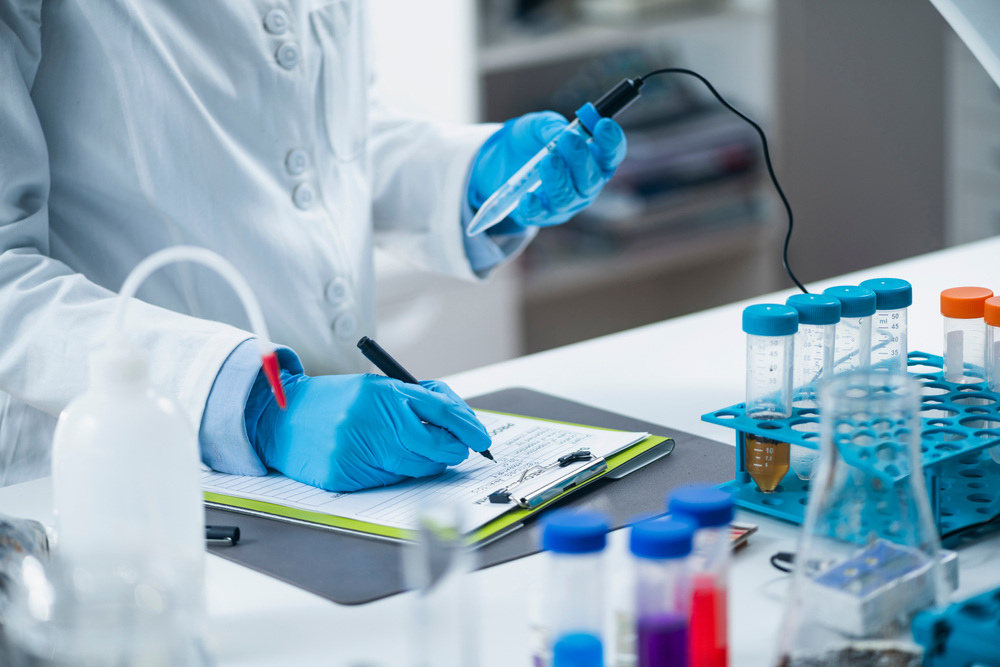Lab equipment certification is an official way to verify that lab equipment is working properly. Obviously, getting accurate results from your lab equipment is of critical importance. However, do you know when you need lab equipment certification? And, how often should your lab have equipment certified?
At SEPS, our mission is to support the scientific community by keeping labs sanitary, and your lab equipment functional. Whether it’s scientific equipment decontamination or fume hood certifications, we’re committed to fulfilling the unique needs of modern labs. Therefore, we understand the importance of equipment certification.
In this post, we’ll discuss the 4 (major) times you will need lab equipment certification.
-
After you have your lab equipment calibrated
Calibration and certification are two very synonymous services. In essence, they very much go hand-in-hand. Both are integral to the success of labs. Additionally, certification very often directly follows calibration. Obviously, if your lab collects data, it must be as accurate and reliable as possible. One of the best ways to ensure accurate results is through calibration services. Furthermore, once we calibrate instruments, your lab will receive the official certificates confirming their accuracy.
Essentially, calibration is the practice of testing and refining the precision of lab equipment. The ultimate purpose is to guarantee the device is producing the most accurate data possible. Every lab should keep their equipment calibrated. In fact, the most well-managed labs maintain a regular calibration/certification schedule. This ensures that their devices are routinely proven to be precise and effective. Following your calibration, you’ll receive documents for each device (certification) confirming their precision.
-
After a lab mishap or accident
One of the most common issues lab devices experience is errors from accidents. While this equipment is usually state-of-the-art, most of it is also very sensitive to drops and impacts. Very often, a simple fall to the ground or minor collision can have a drastic effect on a device’s accuracy. Obviously, if the device is functioning, you may assume the equipment is fine. However, the results and measurements can be incorrect without you knowing. It’s a common mistake that countless lab workers make relatively often. This can have a very adverse effect on your lab. If your lab is processing incorrect data for certain periods of time, it can have long-term, catastrophic results. Your lab can suffer financially, you may lose clients or patients, or there may be other permanent setbacks.
Therefore, in order to ensure you don’t have to deal with any large-scale errors, you should have your instruments certified. Prior to certification, your equipment will go through rigorous calibration and testing to confirm and refine its accuracy. Ultimately, the certification is a legitimate (and professional) way to verify the precision of your devices. In addition, it’s the best way to make sure your equipment has not taken any permanent, irreversible damage.
-
When you feel that you are getting questionable data or results
There comes a time in every lab employee’s career when they must question their results. Of course, this is bound to happen every once in a while. Sometimes, the results simply don’t align with expectations. However, if your device is consistently producing dubious results, there may be a significant problem. Therefore, the best way to counteract this is with swift certification.
Of course, prior to certification, the device must be thoroughly tested and most likely calibrated. Afterwards, you’ll know for sure precisely what condition the device is in. Usually, the solution to questionable data is simple testing and calibration, and then certification. Very rarely is the instrument defective beyond repair. Regardless, the only way to find out for sure is to enlist the help of professional certification services.
-
Before critical testing
Of course, there will come a time when the work or research you must conduct is of extreme importance. In these cases, processing incorrect or unreliable data is simply out of the question. Your work must be as precise and accurate as possible. Therefore, these are usually appropriate times to ensure that your lab’s devices are operating to their highest potential.
Receiving an official certificate from an accredited professional confirming the precision of your equipment will give you extraordinary confidence in the quality of your work. And when the work itself is of the highest importance, certification will provide you with a very valuable peace of mind. Knowing that your instruments have been thoroughly tested and adjusted (and confirmed to be accurate) is an excellent way to begin extremely important work. And certification is one of the surest ways to guarantee that important work is done correctly the first time.
Conclusion
Industry experts all unanimously agree that certification is one of the most important services for any lab. Nowadays, no lab can afford to be negligent about the efficiency of their equipment or lab sanitation. And at SEPS, we’re continuing to go above and beyond to ensure that every lab we service has both functional instruments and safe, sterile conditions. In the age of COVID-19, these are indispensable to a lab’s safety and success.
